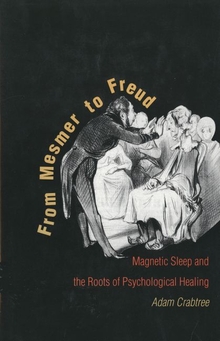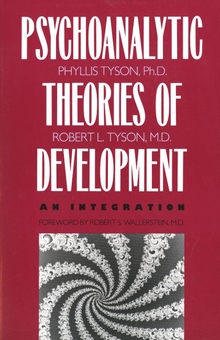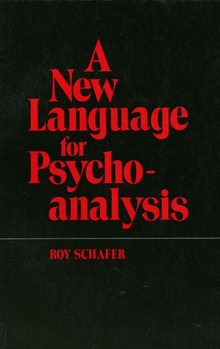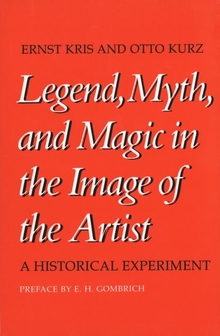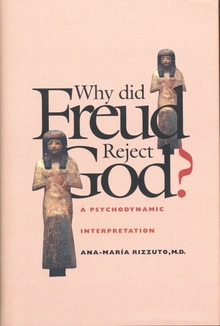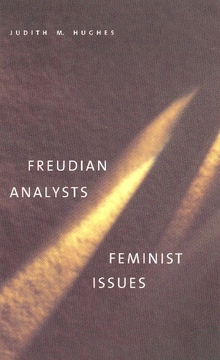From Mesmer to Freud
WARNING
You are viewing an older version of the Yalebooks website. Please visit out new website with more updated information and a better user experience: https://www.yalebooks.com
Magnetic Sleep and the Roots of Psychological Healing
Adam Crabtree
Adam Crabtree describes how in the 1770s Franz Anton Mesmer developed a technique based on "animal magnetism," which he felt could cure a wide variety of ailments when the healer directed "magnetic fluid" through the body of the sufferer. In 1784 Mesmer's pupil the marquis de Puysegur attempted to heal a patient with this method and discovered that animal magnetism could also be used to induce a trance in the subject that revealed a second consciousness quite distinct from the normal waking state. Puysegur's discovery of an alternate consciousness was taken up and elaborated by practitioners and thinkers for the next hundred years. Crabtree traces the history of the discovery of animal magnetism, shows how it was brought to bear on physical healing, and explains its relationship to paranormal phenomena, hypnotism, psychological healing, and the diagnosis and investigation of dissociative phenomena such as multiple personality. He documents how the systematic investigation of alternate consciousness reached its height in the 1880s and 1890s, fell into neglect with the appearance of psychoanalysis, and is now experiencing renewed attention as a treatment for multiple personality disorders that may arise from childhood sexual abuse.
"Crabtree brings new insights to the field...showing how it was a cultural movement to which we are still indebted. The book will appeal to all interested in the exploration of the human mind."—Henri Ellenberger, author of Discovery of the Unconscious
"For generations, the history of mesmerism and animal magnetism has been trivialized in anecdotal, sensationalistic histories. With this massive, authoritative, and intricately detailed study by the Canadian psychologist Adam Crabtree, this has now changed. Beginning with the late eighteenth-century Viennese physician Franz Anton Mesmer and concluding with the early work of Pierre Janet and Sigmund Freud, Crabtree reconstructs a full and remarkably rich tradition of inquiry into psychological healing, hypnotic consciousness, mind/body dualities, and 'dual' or 'double' personality. Historical readers will learn here that this story forms a major episode in nineteenth-century European and American thought and culture. Mental health professionals with an interest in hypnotherapeutics and multiple personality theory will be enlightened to learn that what the author calls 'the alternative consciousness paradigm' boasts a dramatic, century-long tradition before Janet and Freud."—Mark S. Micale, Yale University
"With laudable clarity of exposition, and with formidable erudition, [Crabtree] traces the effect of Mesmer's animal magnetism on psychological thought in the 19th century."—Anthony Daniels, The Sunday Telegraph
"Crabtree's historical detail is always informative and entertaining. . . . The book does much to remedy the current neglect of hypnosis and its therapeutic possibilities."—David Papineau, The Independent on Sunday
"Crabtree's book . . . carefully [traces] some of the early roots of the alternate-consciousness paradigm that Freud and his later followers subsequently developed. . . . [It presents] an excellent, sweeping outline of the progression of ideas and intellectual traditions from which later psychodynamic therapies arose. . . . The historical reach of this book makes it worthy of inclusion in any library's section on the history of science. Today's clinicians and researchers could also explore this work with profit and emerge with a better understanding of how the efforts of several centuries' worth of pioneer explorers of the mind combined to incubate the concepts that we now use to understand the basic aspects of the human psyche."—Robert H. Goldstein, New England Journal of Medicine
"Adam Crabtree, in a scholarly and thoughtful book, has clearly established the seminal role of animal magnetism in modern dynamic psychiatry. In a carefully documented and exquisitely referenced text, Crabtree has established how the concepts initiated by Mesmer and his colleagues under the rubric 'animal magnetism' have led to our current conceptualizations of psychodynamic processes and psychopathology. . . . [This book] can be warmly recommended to all who wish to enlarge their foundation of knowledge in the history of the evolution of psychotherapy and who wish to admire the genius as well as the occasional failings of the progenitors of the field."—Alexander A. Levitan, JAMA
"[One of] the best secondary sources available today. . . . For those interested in the historical perspectives underlying our current knowledge of hypnosis and the dissociative processes, this book is highly recommended."—Melvin A. Gravitz, American Journal of Clinical Hypnosis
"Tracing the origins of psychological healing back to "magnetic sleep" in 1784, the author of this interesting and readable text shows the development of the "alternate consciousness" paradigm of mental illness from its roots with Mesmer and Puysegur through Freud. . . . Anyone interested in the intellectual roots of dissociation, hypnosis, and multiple personalities will find this exploration worthwhile."—Sean R. Evers, Readings: A Journal of Reviews and Commentary in Mental Health
"Adam Crabtree's study is the latest, and one of the most scholarly, contributions to this literature. It is beautifully produced, well written, and meticulously researched. . . . An excellent study that will be of much use to a number of audiences, especially within the history of medicine and psychiatry. This work will help future researchers to explore the historical issues surrounding the relationship between the volatile, charismatic phenomena of altered states of mind, and the historical development of medicine and psychiatry."—Alison Winter, Bulletin of the History of Medicine
"[Crabtree] keeps us intrigued with both his stated focus on ferreting out the roots of our current clinical wisdom, as well as with his silent dropping of 'plums' along the way. . . . This book is a must for academics in mental health."—Mary Jo Peebles-Kleiger, PhD, Bulletin of the Menninger Clinic
"Crabtree's book is very well written. . . because of its relatively narrow focus, Crabtree's history is often rich in detail."—Stephen E. Braude, Journal of the American Society for Psychical Research
Publication Date: September 10, 1993

